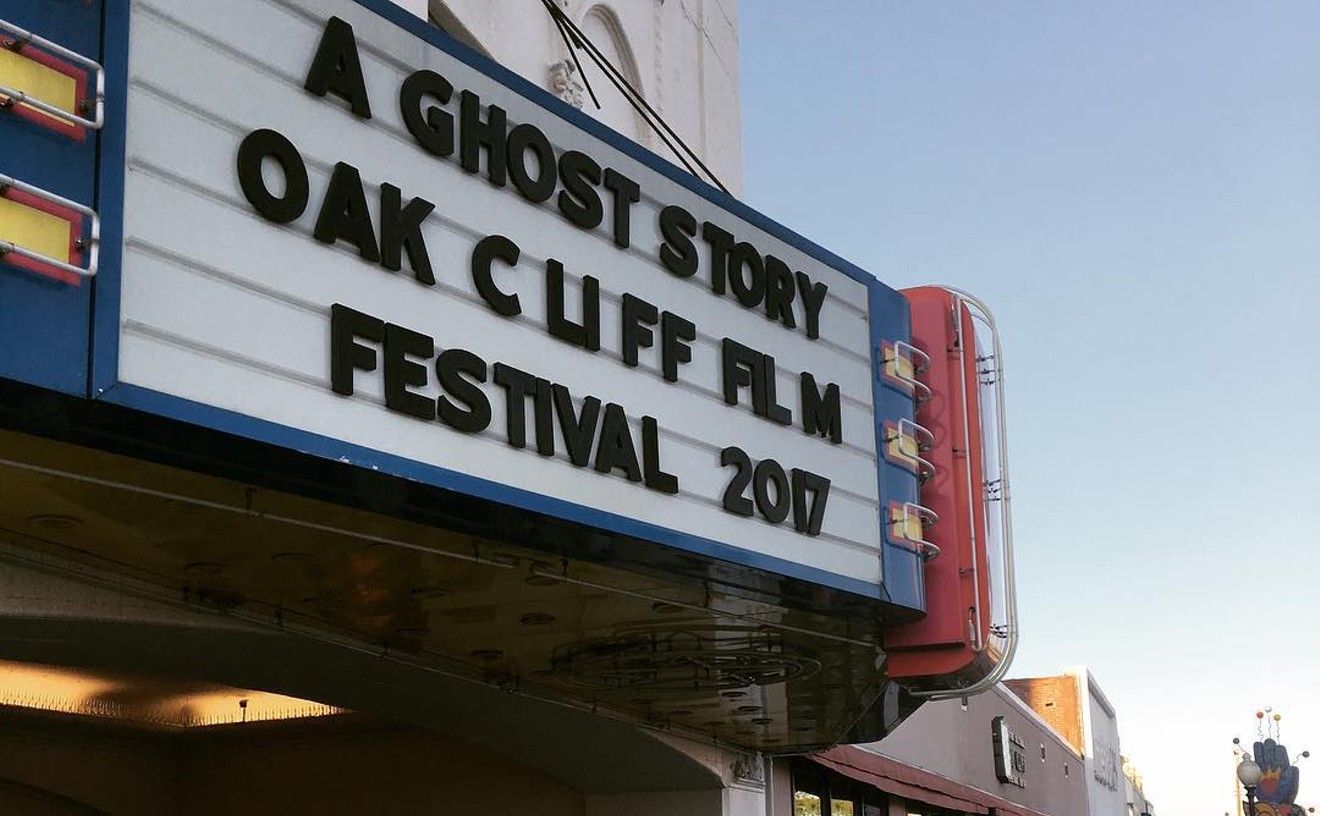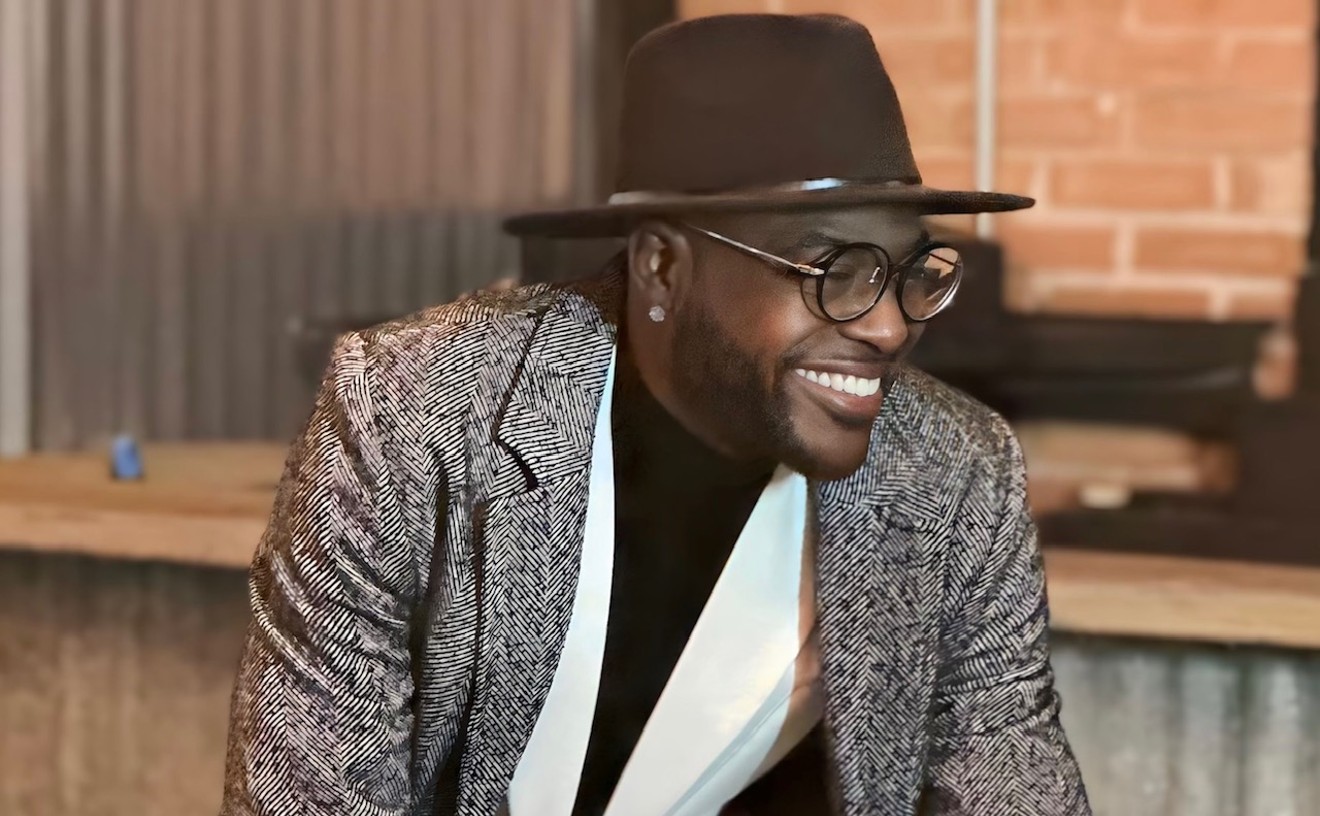Stand-up and improvisational comedians seem like they should be mortal enemies -- two opposing camps with incompatible views on how to make audiences laugh. They're the Hatfields and McCoys of funny, with punch-line flingers on one side and scene-building tacticians on the other battling for your admiration and attention, both ready to launch waves of dick joke missiles and character assassination at each other until one comic is left standing.
In fact, it's not quite dramatic. The feud isn't bloody -- at least not until society breaks down a la The Warriors and improvisors and stand-ups degenerate into roving gangs of chuckle boppers. Stand-up Clint Werth likens the rivalry to the one between clowns and mimes in the Bobcat Goldthwait movie Shakes the Clown.
"It's mostly on the stand-ups' part where we kind of roll our eyes, whereas the improvisers are fairly nice," Werth says. "We're just kind of dicks, is how it works out."
Stand-ups pride themselves on facing the fear that only a harsh, judgmental and sometimes drunk audience can generate, though improv troupes face an even more frightening prospect: standing before the same crowds and turning some control of their material over to the audience and fellow cast members.
"You might have to pretend to be a baby onstage once in a while," comedian Grant Redmond says. "Stand-ups are sort of into their own characters."
"And on top of that, you don't get to make that choice to be a baby," comedian Andrew Woods says. "It can be someone else calls you a baby and you're like, 'Oh, great, I'm a fucking baby now' and you've got to just do what they say. That's one of the big rules of improv. You don't say no."
The Dallas Comedy House in Deep Ellum includes long-form improv and stand-up shows on its schedule, such as the open-mic showcases every Tuesday organized by Redmond and Christian Hughes. Recently, the club offered the two a chance to take a free Level 1 improv class as a thank you gift for organizing the show if they could get enough people for a full class. They organized an entire improv class with local stand-up comedians as students, including Werth, Woods, Chris Darden, Paulos Feerow, Matt Greer, Dante Martinez, Tyler Simpson, Lauren Davis and Porcia Bartholomae.
Clifton Hall, a DCH instructor and improvisor with the comedy group APB, who also does stand-up, stepped in to teach his fellow stand-ups the joys of improv pioneer Del Close's comedic wisdom. The first challenge required some mental rewiring every time they took to the stage.
"The biggest obstacle to overcome is fighting the urge to get the joke out and get that one, punchy one-liner as opposed to letting things burn and building things organically," Hall says. "It's just repetition and having them do scenes over and over again and being able to talk to them and say, 'Stay away from punch lines.'"
Hall would have his students run three-line scenes up until the last Sunday class to punch the punch line mentality out of them and get them to get to the "who, what and where" of their scenes.
"Because we're comics, the third line should be the punch line," Darden says. "Every time we would say something funny that's not necessarily information that we need, he would say, 'Stop going for the joke. Establish what's happening.'"
Improvisers are also discouraged from trying to write entire scenes in their head as they wait for their turn to speak.
"I knew what I was going to say for my first line," Woods says. "I'll say this and I know they're going to say this and boom, I'll hit them with a punch line. That's not what you're supposed to do."
Another challenge for the group was being more emotional with their characters and scenes beyond just angry, gruff or however else they would normally act on stage. One of the first exercises an improviser performs in a Level 1 class is called "Emotions Against a Wall," in which students act out increasingly higher levels of emotion to a wall.
Feerow describes his first class as "scary" because of exercises like these.
"We started playing with emotions a lot," he says, "and I was not comfortable."
But being stand-ups does give them an advantage, Hall says. They at least know what it's like to be on stage.
"They're all super comfortable on stage," he says. "With a lot of Level 1 students, they're taking it because they're not comfortable speaking in front of people, which improv is great for or if you're trying to figure out what you want to do in comedy."
Since stand-ups generally don't move around much on stage, they also had to learn how to do more with the space they were given, something Werth says he tends to avoid in his act. The last time he tried something even remotely physical in his stand-up, he injured himself.
"I told a joke, and then I told it again as Dane Cook, and I knocked the stool over and started humping it," he says. "While I was doing that, I strained my ACL. That was the last time I did an extreme act-out."
"We've done exercises where we get really physical and we realize it's OK to move around and use your body," Redmond says. "In fact, it helps a lot." "It's encouraged because no one wants to do a scene where it's just talking heads," Darden adds.
They all say they learned much from their first forays into improv, but it's too early to tell if the lessons will carry over to their stand-up acts.
At least it proves that the two factions can get along, Hall says.
"I don't think there is ever a reason for them to be just stand-ups or improvisors," Hall says. "Both should be able to live in the same little world."











